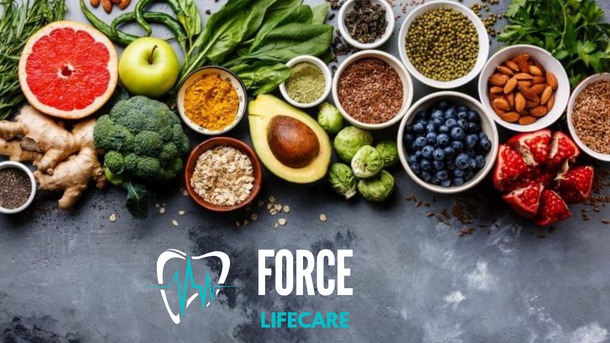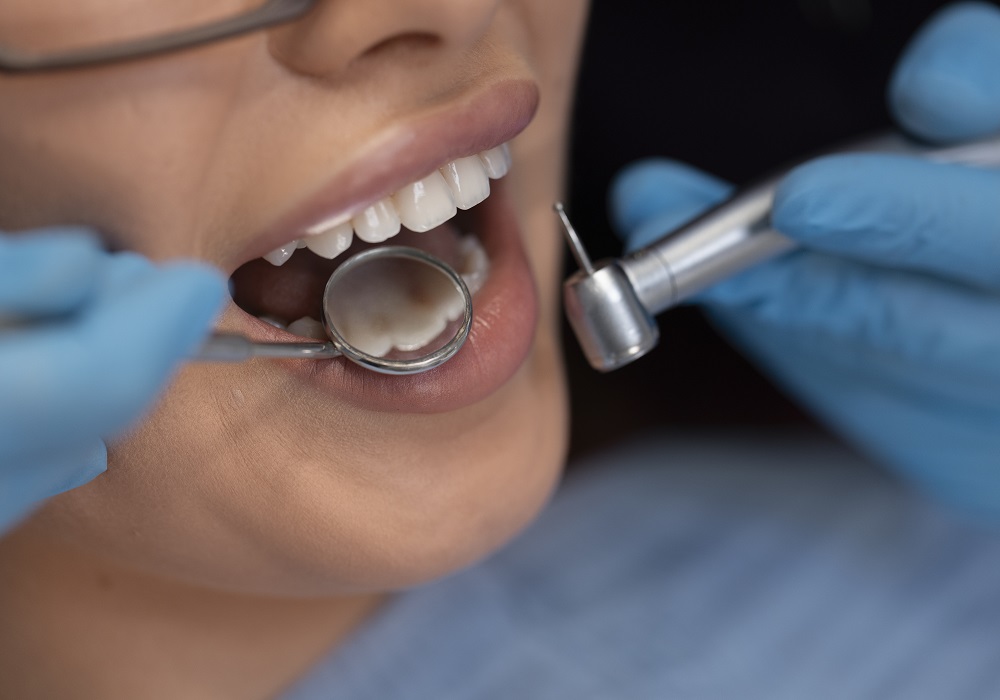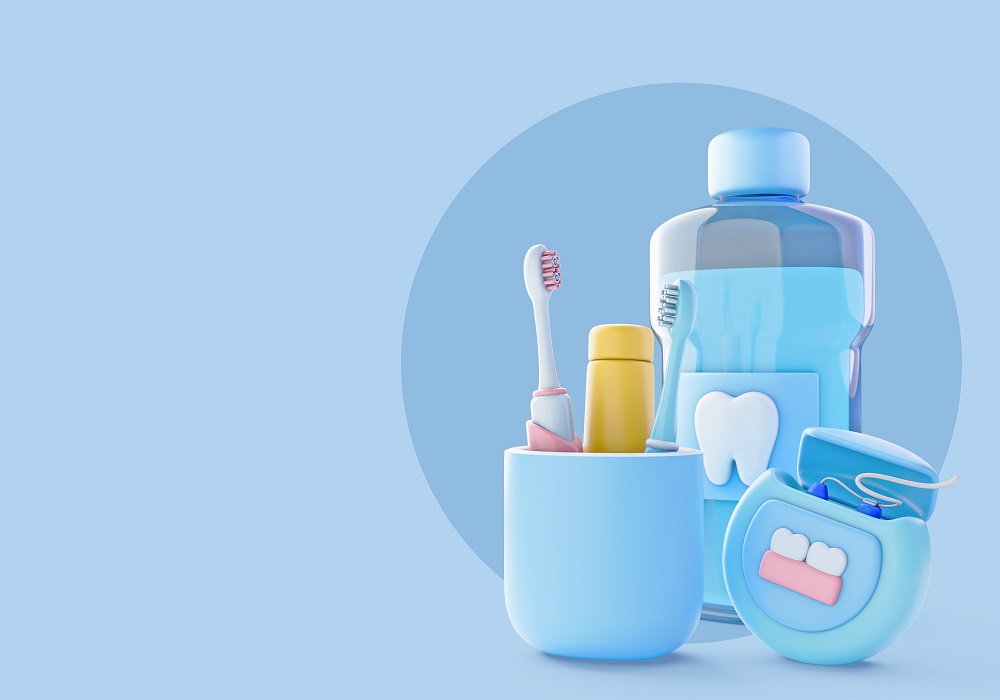Nutrition plays an important role in maintaining good oral health. A healthy diet provides the essential nutrients that your teeth and gums need to stay healthy and strong. Here are some ways that nutrition can impact your oral health:
Prevents tooth decay: Consuming sugary or starchy foods and drinks can increase the risk of tooth decay. A diet rich in fruits and vegetables, whole grains, and lean proteins can help reduce the risk of tooth decay by providing the necessary vitamins and minerals to strengthen teeth and gums.
Promotes gum health: A diet rich in vitamin C can help promote healthy gums and prevent gum disease. Good sources of vitamin C include citrus fruits, berries, kiwi, and leafy green vegetables.
Helps repair and rebuild tooth enamel: Calcium and phosphorus are essential minerals that are necessary for building and maintaining strong tooth enamel. Dairy products, leafy greens, and nuts are good sources of these minerals.
Reduces inflammation: Some foods, such as omega-3 fatty acids found in fatty fish like salmon, can help reduce inflammation in the body, including inflammation in the gums.
Promotes saliva production: Saliva plays an important role in maintaining good oral health by helping to wash away food particles and neutralising acids in the mouth. Eating crunchy fruits and vegetables, such as apples and carrots, can help promote saliva production.
How to protect your teeth
There are several ways to protect your teeth and maintain optimal dental health. Here are some tips:
- Practice Good Oral Hygiene: Brush your teeth twice a day for at least two minutes each time and floss daily to remove food particles and bacteria from between teeth.
- Limit Sugary and Acidic Foods: Sugary and acidic foods can contribute to tooth decay and erosion of tooth enamel. Limit consumption of these foods and drinks.
- Use Fluoride: Fluoride is a mineral that helps strengthen tooth enamel and prevent tooth decay. Use fluoride toothpaste and consider getting fluoride treatments from your dentist.
- Wear a Mouthguard: If you play contact sports or grind your teeth at night, wear a mouthguard to protect your teeth from damage.
- Visit the Dentist Regularly: Regular dental checkups and cleanings are essential for maintaining optimal dental health. Your dentist can identify and treat any potential dental issues before they become more severe.
- Don't Smoke or Use Tobacco: Smoking and tobacco use can increase the risk of gum disease and oral cancer.
- Stay Hydrated: Drinking plenty of water can help wash away food particles and bacteria from the mouth, reducing the risk of tooth decay and gum disease.
By following these tips, you can protect your teeth and maintain optimal dental health.
FAQ
Tooth decay: Consuming foods and drinks high in sugar and carbohydrates can cause cavities in teeth.
Gum disease: Vitamin C deficiency, which is common in people with poor nutrition, can weaken the gums and cause gingivitis (inflammation of the gums) or periodontitis (gum disease).
Oral infections: Poor nutrition can weaken the immune system, making it easier for oral infections such as thrush and cold sores to develop.
Delayed tooth eruption: Nutritional deficiencies can lead to delayed tooth eruption in children.
Oral cancer: Poor nutrition, particularly a lack of fruits and vegetables in the diet, can increase the risk of oral cancer.
oral health can affect the immune system. The mouth is a gateway to the body, and oral infections and inflammation can have systemic effects on overall health, including the immune system.
Oral infections such as gum disease and periodontitis can lead to chronic inflammation in the mouth, which can trigger a systemic inflammatory response. This chronic inflammation and immune system activation can increase the risk of other health problems such as cardiovascular disease, diabetes, and rheumatoid arthritis.
Furthermore, poor oral hygiene can lead to the accumulation of harmful bacteria in the mouth, which can enter the bloodstream and cause systemic infections. These infections can weaken the immune system and make it more difficult for the body to fight off other infections and diseases.
There is no direct link between oral health and hair health. However, both oral health and hair health can be influenced by overall health and nutrition.
For example, poor nutrition can affect both oral health and hair health. A diet lacking in essential vitamins and minerals, such as vitamin C, vitamin D, iron, and zinc, can cause problems such as gum disease, tooth decay, and hair loss.
There is no direct link between oral health and eye health. However, both oral health and eye health can be influenced by overall health and certain medical conditions.
For example, some medical conditions, such as diabetes and hypertension, can affect both oral health and eye health. Diabetes can increase the risk of gum disease and periodontitis, which can lead to inflammation throughout the body, including the eyes. Hypertension can cause damage to the blood vessels in the eyes, which can lead to vision problems and even blindness.



 Dental Checkup Services
Dental Checkup Services
 Our range of products
Our range of products
 Oral Care Blogs
Oral Care Blogs

Recent Comments